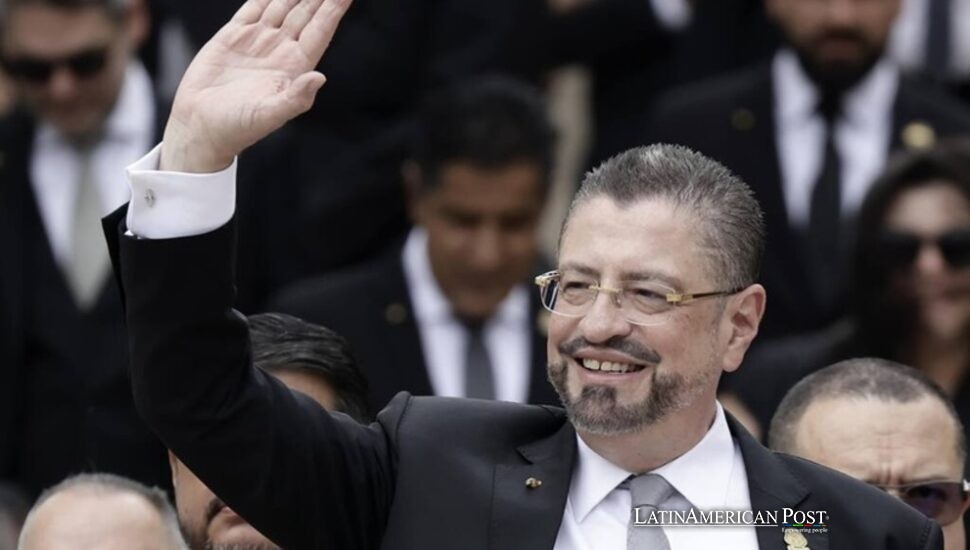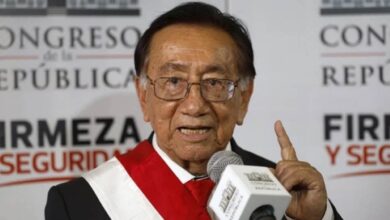Costa Rica’s Political Earthquake: Lawmakers Weigh Lifting President Chávez’s Immunity

What began as a routine contract investigation now threatens to shatter precedent in Costa Rica, as lawmakers debate whether to strip President Rodrigo Chaves of immunity—a move with no historical parallel and profound implications for the region’s most stable democracy.
Cracking the Shield: A Vote Like No Other
Costa Rica’s constitution has long treated presidential immunity as sacred. It’s why, until now, no sitting president has ever faced criminal proceedings. That firewall, forged in the aftermath of the country’s 1948 civil war and its bold decision to abolish the army, was meant to protect against the instability that haunted its neighbors. But today, under the golden dome of the Legislative Assembly in San José, lawmakers are inching toward breaking that rule.
At the heart of the storm is a $405,000 government communications contract allegedly steered from within the Casa Presidencial to a politically connected media firm. Prosecutors argue it was more than a bureaucratic hiccup—it was a maneuver to channel public money through private hands, and a violation of the public trust.
A three-member legislative commission is now reviewing documents forwarded by the Supreme Court, including transcripts, bank records, and testimony. Their job: recommend whether the complete Assembly should lift President Rodrigo Chaves’s constitutional immunity. They have 40 days, but pressure is mounting to move faster. If 38 out of 57 deputies vote yes, prosecutors can proceed. If they fall short, the case goes dark until Chaves leaves office in May 2026.
Costa Rica has tried former presidents before—but never like this. Julieta Bejarano, a constitutional expert from the University of Costa Rica, told EFE the moment is nothing short of a “democratic stress test.” “Our system assumed restraint,” she said. “This is about finding out whether it still exists.”
Contracts, Campaigns, and Rising Tensions
The main character in the contract drama is Cristian Bulgarelli, a media consultant whose firm, RMC La Productora, secured a government deal funded by the Central American Bank for Economic Integration (BCIE). Prosecutors claim Bulgarelli helped write the contract specs after holding meetings inside the Presidential House—effectively rigging the process in his favor.
Others implicated include Culture Minister Jorge Rodríguez, who at the time was Chávez’s chief of staff, and former campaign strategist Federico Cruz. All three deny wrongdoing. But what gives the case its political voltage is the potential connection between public funds and political messaging—a red line in Costa Rica’s traditionally tight campaign finance laws.
And the storm doesn’t end there.
A separate dossier under review by the Supreme Court points to possible parallel financing during Chávez’s 2022 campaign. If validated, the Assembly could be asked to vote again, twice in one term, on whether to lift immunity. It would be unprecedented.
Chaves has responded with scorched-earth rhetoric. “This is not justice—it’s politics in a judge’s robe,” he said in a press conference after the referral. He’s accused Attorney General Carlo Díaz of waging a vendetta, and described the allegations as “petty sabotage” by elites threatened by his outsider presidency.
Despite the fire, Chávez’s approval ratings remain above 50%, buoyed by a populist platform that targets the judiciary, traditional parties, and even the media. But the BCIE case undercuts a key promise of his administration: to clean up corruption and break with the backroom deals of the past.
Personal Feuds, Political Consequences
The conflict between Chávez and Costa Rica’s judiciary has gone from procedural to personal.
In March, the president led hundreds of supporters through the capital, demanding the resignation of Attorney General Díaz. Judges and civil society leaders called the protest a direct attack on the independence of the justice system.
Tensions have spilled into other arenas as well. The Supreme Electoral Tribunal has formally reprimanded Chávez for campaigning outside the electoral window. At the same time, opposition parties have accused him of “beligerancia política”—engaging in constant political warfare from within the executive office.
Though Costa Rica bars immediate re-election, the president’s supporters routinely tell crowds that Chávez needs a congressional supermajority in the next cycle to “finish what he started.” Speculation swirled for months that he might pivot to run for Congress himself in 2026, a rumor he publicly shot down just last week.
Inside the Assembly, the math is daunting for the president. His party, Social Democratic Progress, holds just 10 of 57 seats—far short of the two-thirds needed to block the immunity vote. Opposition parties are fragmented but control enough seats to act, if they can agree on a familiar path.
Daniela Rojas, a lawmaker from the conservative Arena party, told EFE that “protecting the country’s institutional integrity must come before political cost.” But others are wary. One centrist deputy admitted anonymously, “We’re walking a tightrope—too much caution and we look like cowards, too much zeal and we look like executioners.”
The Stakes at Home—and Far Beyond
Should the Assembly vote to lift immunity, prosecutors say they’ll act quickly. That means a sitting president could be summoned for questioning within weeks—a spectacle never seen in modern Costa Rican history. Legal experts predict that if the case advances, a formal indictment could follow within months.
The implications are enormous. Some believe it would be a triumph of accountability—a message that no one, not even the president, is above the law. Others fear a political backlash, mainly if Chávez uses the moment to frame himself as a martyr of the establishment.
“This isn’t about legal chaos,” said Bejarano, the constitutional scholar. “It’s about civic exhaustion. People will lose faith in institutions if all they see is a fight, with no resolution.”
The world is watching. From Jair Bolsonaro’s showdowns with Brazil’s courts to Nayib Bukele’s judicial reshuffles in El Salvador, Latin America is witnessing an era of strongmen clashing with traditional oversight. What Costa Rica does next could define whether its system bends or holds.
For now, all eyes are on the commission. The documents grow thicker. The deadlines draw closer. And a country long proud of its peaceful politics is bracing for a vote that could redraw its democratic lines.
Also Read: Bukele Resets El Salvador’s Constitution—and the Clock on Presidential Limits
“The world respects Costa Rica because we don’t break things to fix them,” Bejarano told EFE. “But what happens next will show whether that respect is still deserved.”




